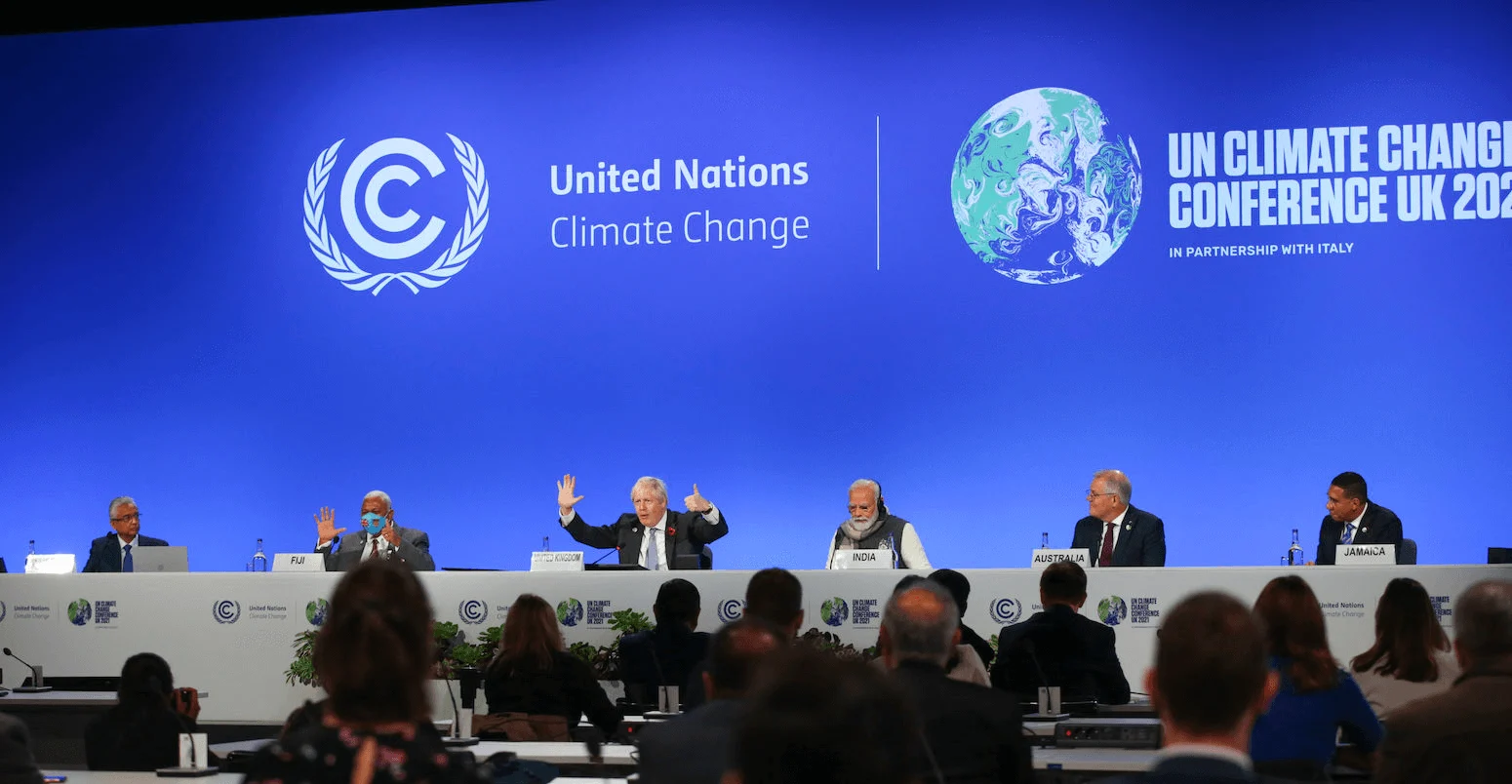Towards the end of 2021, the release of the Netflix film Don't Look Up was highly anticipated by many. While it received mixed reviews, it was a standout film for plenty of people. Brilliantly made, with an all-star cast and the perfect balance between humour and the grave issue faced by Planet Earth: an asteroid on its way to kill everyone and destroy the planet. Our governments' response to the asteroid was almost too reminiscent of how other issues, such as COVID-19 and climate change, have been dealt with by some world leaders in recent years. Ignoring the science at hand? Tick. Making decisions swayed by money? Tick. While this may have been an amusing allegory for some, it did leave me with a sense of dread once the film had finished. Climate change anxiety affects many people, particularly the younger generations. According to a 2021 survey, nearly 60% of young people are very or extremely worried about climate change. It is a concern that can be all-consuming at times and yet leaves many people feeling completely helpless.
Growing up, climate change was an issue we were always made aware of at school. Simple science lessons taught us the importance of small acts, such as not leaving the taps on while brushing your teeth or putting on an extra jumper instead of turning the heating on. At the time, these tiny changes in behaviour felt like they could have a genuinely significant impact on helping to prevent global warming. However, as time passed and I grew older, I began to better understand what was actually happening with climate change. Suddenly, I was reading some terrifying stories in the news: forest fires, record temperatures being reached in summer, heat waves each year, and animals like orangutans being pushed out of their natural habitats. David Attenborough's nature documentaries were laced with warnings about global warming and video footage of the damning evidence. All at once, I was beginning to realise that I needed to do more than turn the taps off and wrap up warmer in the house. More behaviours needed to change.

With a small amount of online research, it is quite easy to identify what we can do to help the environment. While recycling is a crucial habit to maintain, we can also make significant changes by reducing the amount of single-use plastic that we use: from taking a reusable bag to the supermarket; buying fruits and vegetables without plastic wrapping; using reusable water bottles and coffee cups; and cutting the use of plastic straws. While these may feel like insignificant changes, if you consider the reduction in one person's single-use plastic waste within a year, the impact of millions of people doing the same would be remarkable.
Another crucial change that we can make is reducing consumption of animal products, with a particular focus on meat. This is one of the most significant issues in climate change discussions. Not only do cows produce a substantial amount of methane, a greenhouse gas that traps 30 times more heat within the atmosphere than carbon dioxide, but the deforestation of land to expand farmland for livestock is also creating a severe problem. Forests are deliberately being set on fire to clear land for grazing, which is releasing even more carbon dioxide into the atmosphere and reducing the number of trees that we have to absorb Earth's carbon dioxide naturally. Furthermore, animals' natural habitats are being destroyed, contributing to the decrease of populations of certain species, such as the beloved orangutans. It is estimated that over 25% of the land on Earth is used to raise livestock. The process of eating meat has become highly inefficient, with livestock eating a greater mass of plant-based food during their lifetime than the mass of meat produced after their death. If plant-based diets were to become more common, less produce and farmland would be wasted if the food grown for the animals was instead intended for human consumption. Eating less meat can, therefore, significantly reduce your carbon footprint.
Despite these changes, how much impact do we as individuals really have? It can feel incredibly overwhelming to know that our own efforts are simply a drop in the ocean in comparison to the actions of our governments, large corporations, and the wealthy. Despite scientists' repeated warnings since the late 1950s about the effects of climate change, their ignorance has caused many young people to feel helpless about a lack of control over their futures. As we see increasingly drastic changes in weather and natural disasters across the globe, there is undoubtedly a feeling of underlying doom for young people when considering where humanity could be in 50 years' time. While many of us are trying our best to change our behaviours to make the future of this planet seem brighter, it feels as though governments across the world are failing to respond appropriately to global warming issues. Even a paper signed by over 11,000 scientists worldwide stating that we are in a climate emergency has not been enough to encourage governments to act swiftly to try and save the planet while it is still possible.

Last year's COP26 event in Glasgow provided people with a small amount of hope that governments would work together to make positive decisions that would have a genuine and long-lasting impact, especially following a year of extreme weather and natural disasters across the world, such as wildfires, heatwaves, and floods. During the summit, over 100 countries' leaders pledged to cut CO2 emissions in the following year, to reduce their coal usage, and stop deforestation by 2030. However, pledges made at the summit are generally made to be self-policed, so this is not a complete guarantee that governments will implement these changes.
Within the UK, we have cut down on our non-renewable energy sources. We have increased the use of renewable energy sources considerably (such as wind and solar power), with almost half of our electricity produced by renewable sources in 2020. On the broader picture, however, the UK's finance industry creates 1.8 times more emissions than the whole of the UK through the provision of loans and investments to polluting companies. This is not just an issue within the UK: it has been found that the wealthiest 1% of the global population have produced over double the amount of carbon pollution produced by 3.1 billion of the world's poorest people between 1990 and 2015. Financial gain appears to be a more enticing future for the wealthy than protecting our planet. Although governments are likely aware of how these investments contribute to global warming, there seems to be no effort from them to stop the finance industry's errors. With statistics like this, the acts of recycling, reducing meat consumption, and turning the lights off in your house, suddenly seem to pale in comparison. How are we meant to feel like we are making positive changes to our environment when governments and wealthy people appear to be cancelling out our behaviour?
Does it make us feel helpless? Yes. Does that mean we should stop our positive behavioural changes? Absolutely not. The habits we have developed to help the environment could become even more significant if more people around us also begin to follow suit. For example, if fewer animal products are consumed by a growing number of people, supermarkets and food production companies may reach a point where they realise that they need to reduce the amount of meat, eggs, milk, etc. that is produced. Furthermore, by encouraging more people to read scientific literature about climate change, sign petitions, and protest for genuine change from our governments, perhaps the future of our planet will not look as dire as it does now. COP26 was one of the most significant summits held so far. Some of the changes proposed and agreed upon by countries, such as reducing coal usage had never been brought up before. While not all countries did agree on everything, governments across the world may be beginning to understand the anxieties many of us are feeling about global warming and will start making the right decisions.
So, how do we avoid an ending like that in Don't Look Up? We can drink our oat milk, eat a vegetarian dinner, turn the heating down by a few degrees, recycle our rubbish, and hope with all our hearts that the people who have genuine influence over the future of our planet will finally open their eyes and see that our time, and the future of our youngest generations, is running out. Our planet is beautiful, and it's high time people in power started acting like it.
Written by
Eve GardinerPhysics graduate who has too many books and not enough time to read them. Interested in art, music, films, and learning more about the world we live in.
Weekly emails
Get more from Eve
The Fledger was born out of a deep-seated belief in the power of young voices. Get relevant views on topics you care about direct to your inbox each week.
Write at The Fledger
Disagree with Eve?
Have an article in mind? The Fledger is open to voices from all backgrounds. Get in touch and give your words flight.
Write the Contrast

